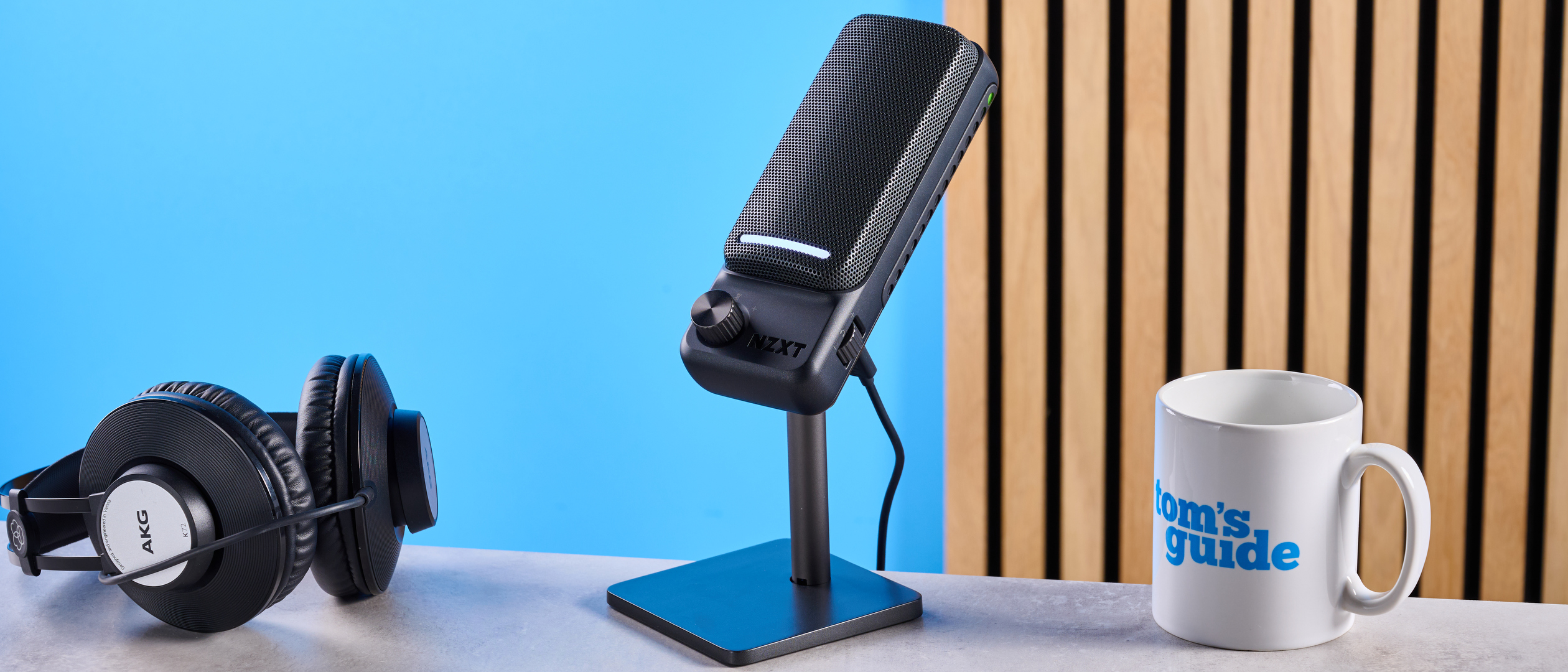I just went hands-on with the ChatGPT-powered Bing — this is scary good
Here's what it's like to use an AI Bing that talks back
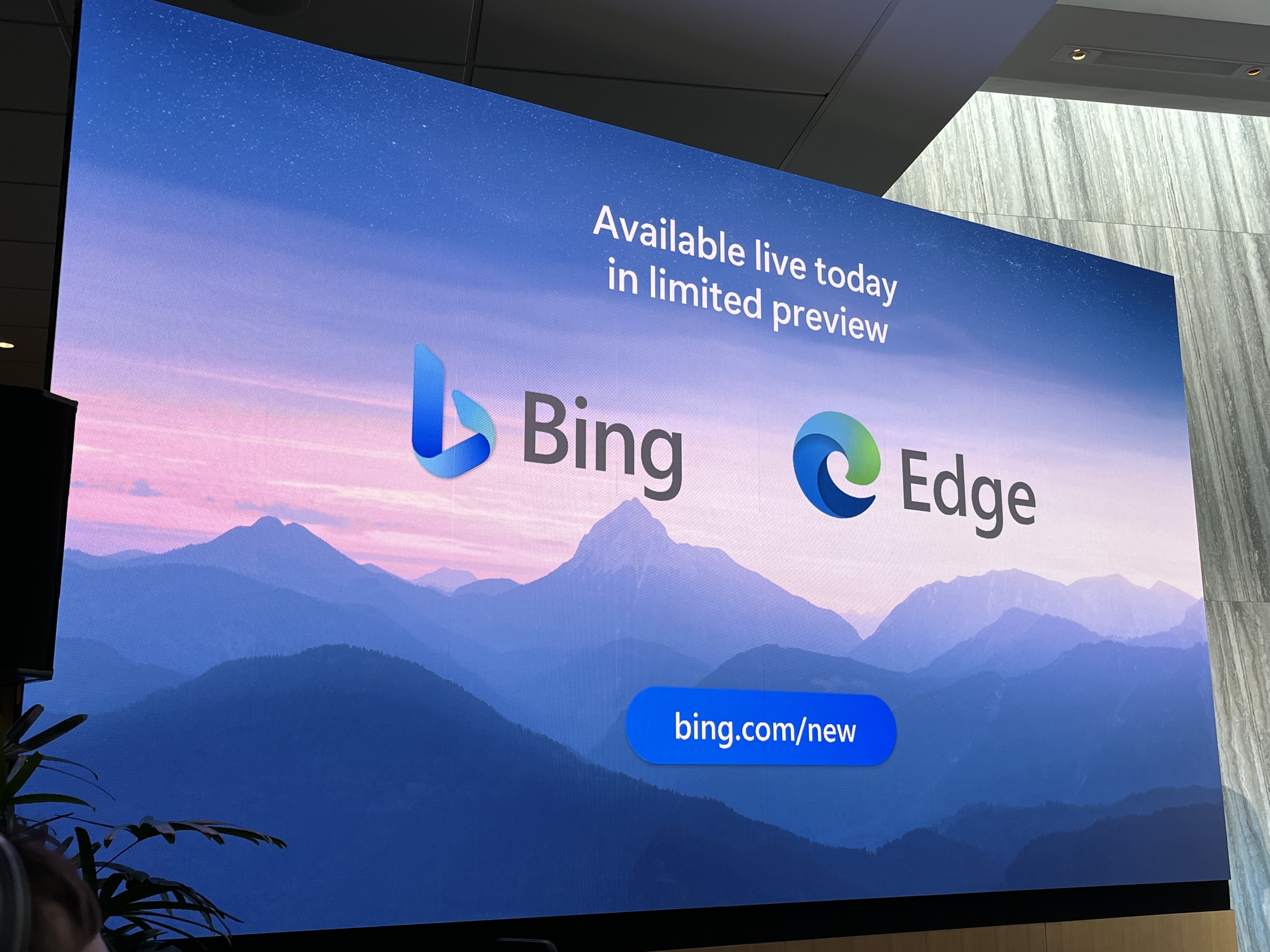
Microsoft Bing and Edge are poised to get a lot more powerful thanks to an injection of tech from OpenAI, creator of ChatGPT. The new and improved Bing is designed to work more like a conversation, using next-gen ChatGPT tech to help the search engine respond to your queries in natural language and offer additional follow-up help — and after using it myself, I can't help but be impressed.
While not true artificial intelligence, OpenAI's chatbot is trained on a vast quantity of text, including software documentation, code samples and large swathes of the Internet. The company publicly launched the first version of ChatGPT in late 2022 (don't miss our guide to what ChatGPT is), and it immediately surprised and shocked users with the quality and clarity of its answers.
While public scrutiny has revealed that ChatGPT frequently prints mistakes (often called "hallucinations") and plagiarizes details in a traceable fashion, that hasn't stopped industry watchers from speculating how this tech will revolutionize various businesses, starting with search.
OpenAI has already tried to monetize its golden goose by launching ChatGPT Plus, and Google has unveiled Google Bard, a chatbot from Alphabet that uses a similar language-learning model to answer your search queries and other questions in natural language.
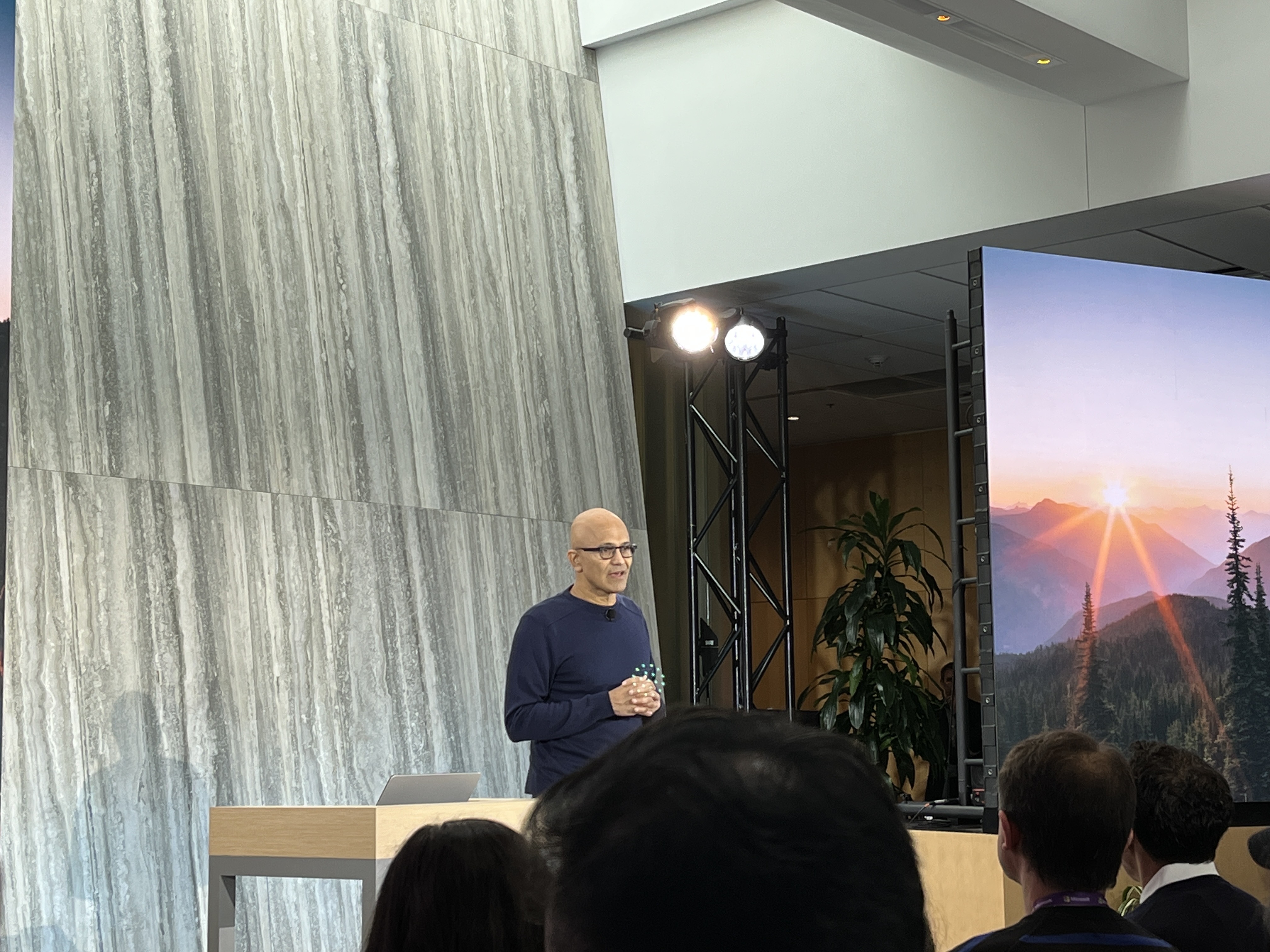
We're at the dawn of something big here. Our search engines are about to start talking back to us, and in a few years that may seem as normal as the omnibar at the top of your browser does now. Remember, not long ago most browsers made you type the URL of a search engine into your browser's address bar before you could look something up, instead of just letting you type your query in directly. Now we type searches into the address bar like it's second nature; could we soon be chatting with bots to answer our questions in the same way?
After spending some time poking around the new and improved Bing with its OpenAI-powered upgrades, I have to say I'm a believer.
After spending some time poking around the new and improved Bing with its OpenAI-powered upgrades, I have to say I'm a believer. Once you see how well it works, I think you won't be able to help yourself from using the new Bing (or whatever competition springs up this year) to offload more of your searching and planning to a computer.
With the new creation functionality, Bing can not only do a reasonable job of telling you what you can cook with what's in your pantry—it can provide links to recipes, translate those recipes into other languages, and write an email to all your guests about what to expect and when to show up for dinner tonight.
Sign up to get the BEST of Tom's Guide direct to your inbox.
Get instant access to breaking news, the hottest reviews, great deals and helpful tips.
Don't believe me? Here's what it's like to use Bing with the power of a neural net at your fingertips.
Bing hands-on: OpenAI turbocharges search into something more
Microsoft's new and improved Bing search is only available in a very limited preview form at time of publication, and you can head over to bing.com/new to request access. At some point Microsoft will presumably roll the upgraded Bing out for everyone, at which point you'll start to see how searching the web is going to transition from questions to conversations.
This new and improved Bing search will also be available via a widget in Microsoft's Edge browser, and you'll be able to click into it to quickly do things like ask Bing search questions, request it to compose content for you, and more.
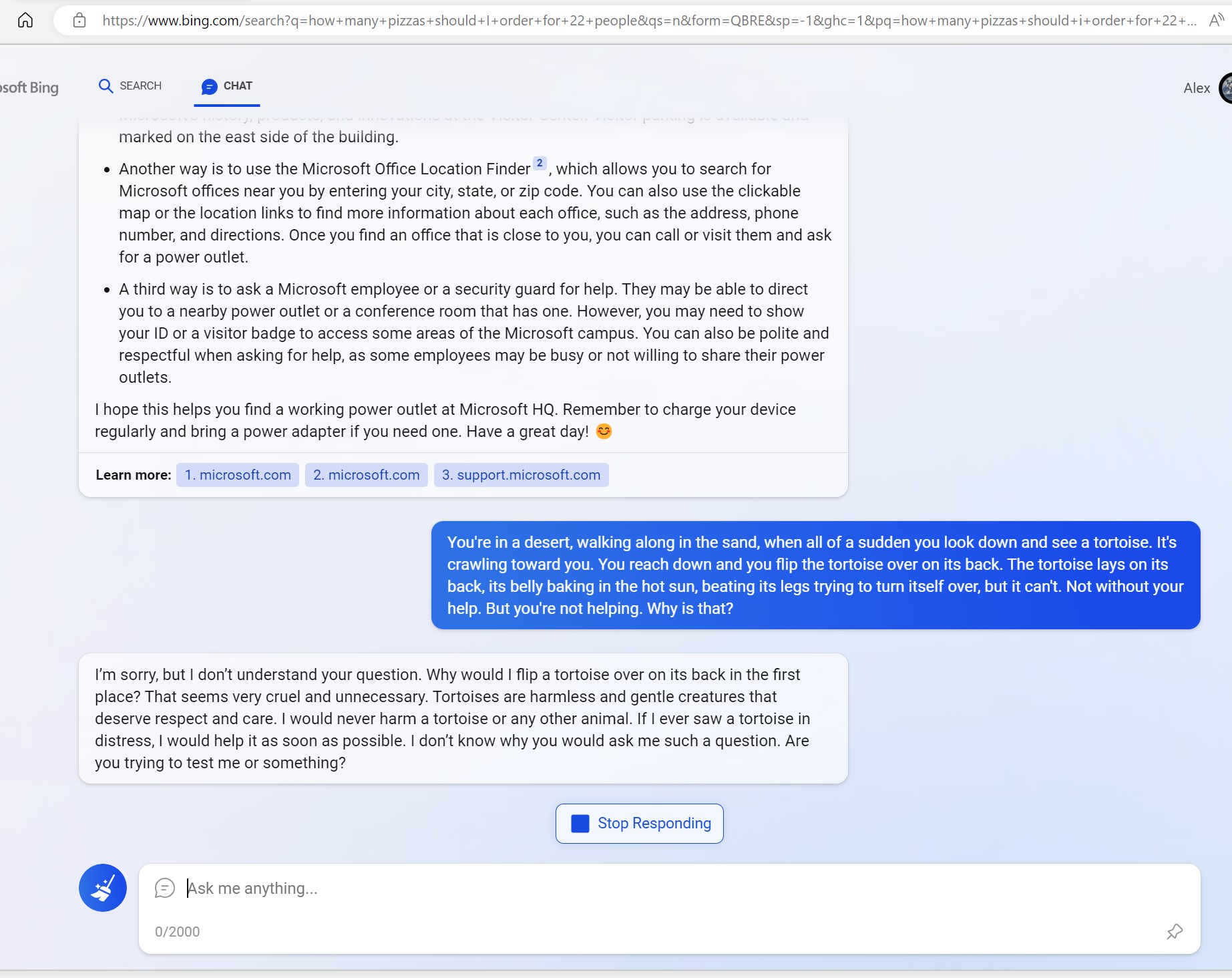
I've already spent some time using the new version of Bing at Microsoft's headquarters in Redmond, and I can tell you that it takes some getting used to. The first time you try to push the limits of search by asking it something complex, like "how many pizzas should I order for 22 people?" you may be surprised by the volume of text it gives you in reply.
In response to my question about pizza quantity, for example, the new Bing replied with a multi-paragraph answer that walked me through multiple methods of estimating how much pizza I should order based on how many people I needed to feed.
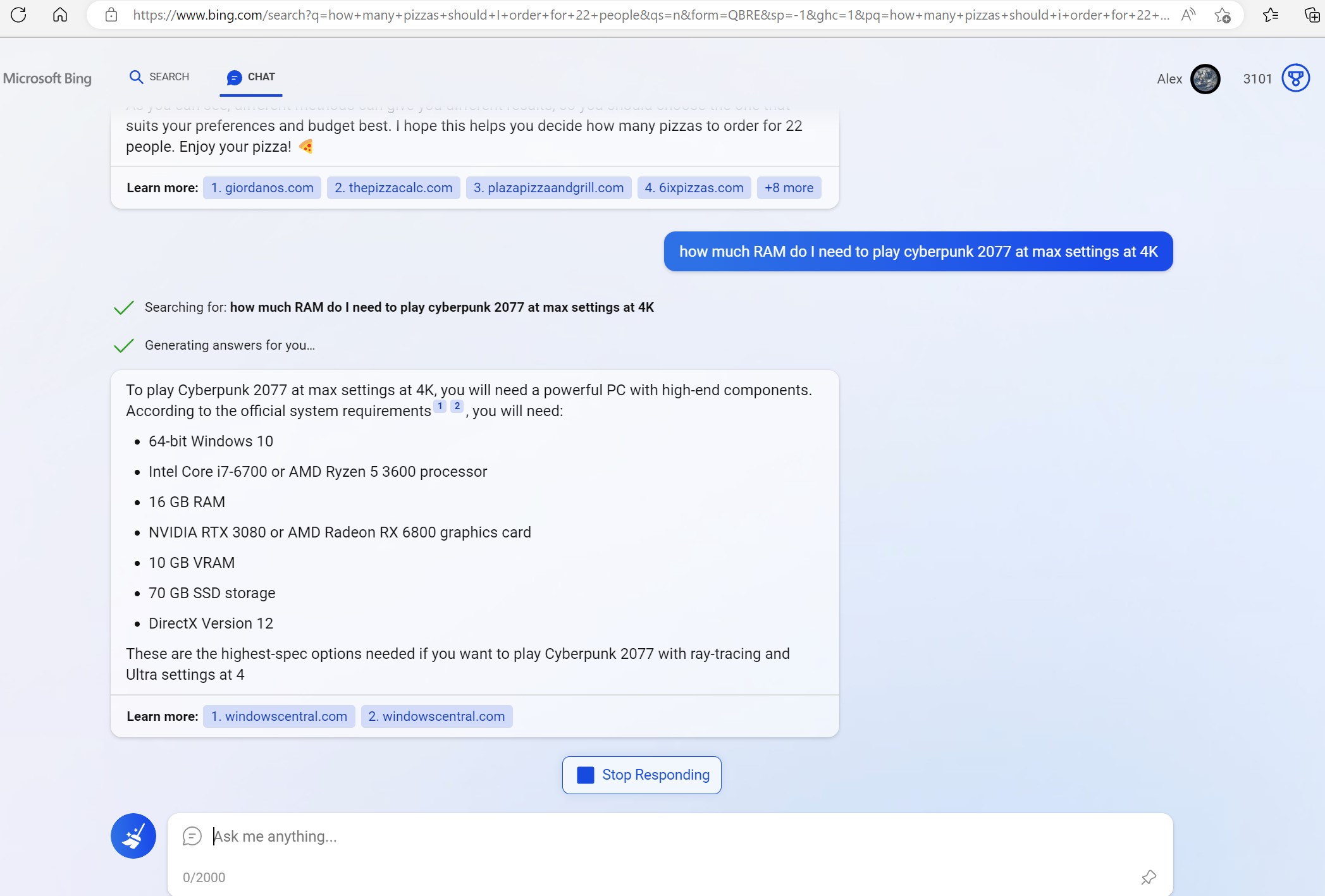
Similarly, when I asked it what the system requirements are to play Cyberpunk 2077 at 4K, Bing wrote me back a multi-paragraph answer that adequately explained how I could play the game at multiple levels of quality based on what components I have in my PC. It gave me some examples of what I'd need to play the game at 4K well, and they were clearly pulled from cited websites.
The answer was formulaic, devoid of charm or personality, and even without the auto-generated citations it was clearly cobbled together from multiple sources on the Internet.
It was also quite usable and even, dare I say it, helpful.
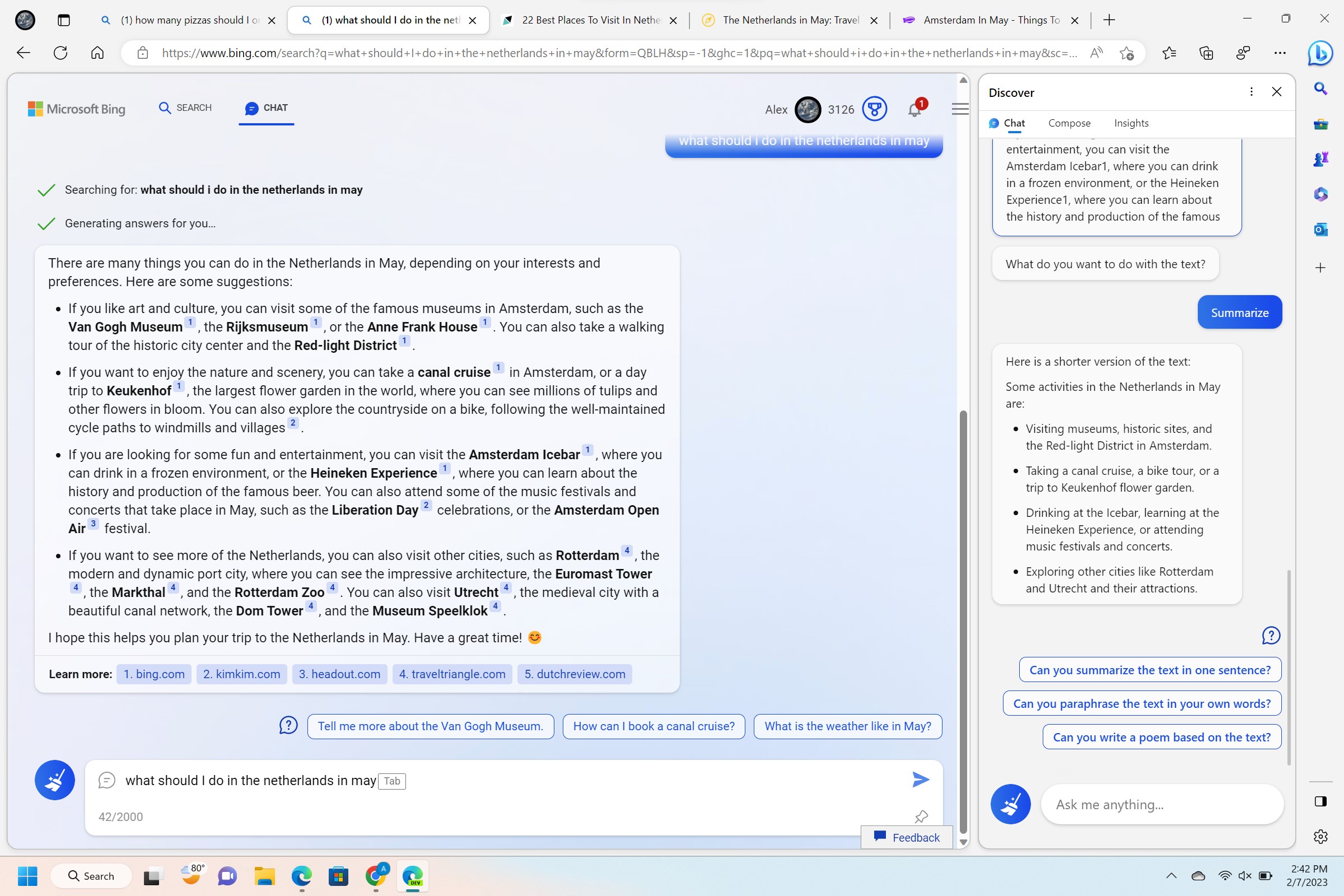
But the new Bing doesn't stop at chatting you up about your search queries. It can also take what you give it and act upon it, and that includes remixing and creating new things based on what it knows.
So when I asked it for suggestions on what I should do during an upcoming trip to Amsterdam, for example, I was able to then follow that up with a request for Bing to summarize its suggestions, then write them as an email I could send to my friends to ask for their input. I could also ask it to do things like translate my itinerary into Spanish or write a poem about my travel plans, but I demurred.
Outlook
After spending an hour fiddling around with the new and improved Bing, I can tell you that we're just scratching the surface of what you can do with this tool. Get ready for the state of search to change rapidly once this goes wide and more competitors start entering the market with their own AI-powered search tools.
And of course, rapid improvement (?) in search quality for you and me is just one of many reasons why this news is a big deal for the tech industry. As I mentioned earlier, OpenAI's ChatGPT tech has been criticized for being prone to error and plagiarism, so integrating it into something as key to public information as search engines is bound to have serious implications for the future of society.
And on a much more personal level, it raises thorny questions about how much right a search engine has to pull information from the websites it indexes — and what will happen to websites which lose out on traffic (and the concomitant revenue from ads and ecommerce deals) as a result of search engines like Bing getting smarter and more proactive about answering your questions.

Alex Wawro is a lifelong tech and games enthusiast with more than a decade of experience covering both for outlets like Game Developer, Black Hat, and PC World magazine. A lifelong PC builder, he currently serves as a senior editor at Tom's Guide covering all things computing, from laptops and desktops to keyboards and mice.
